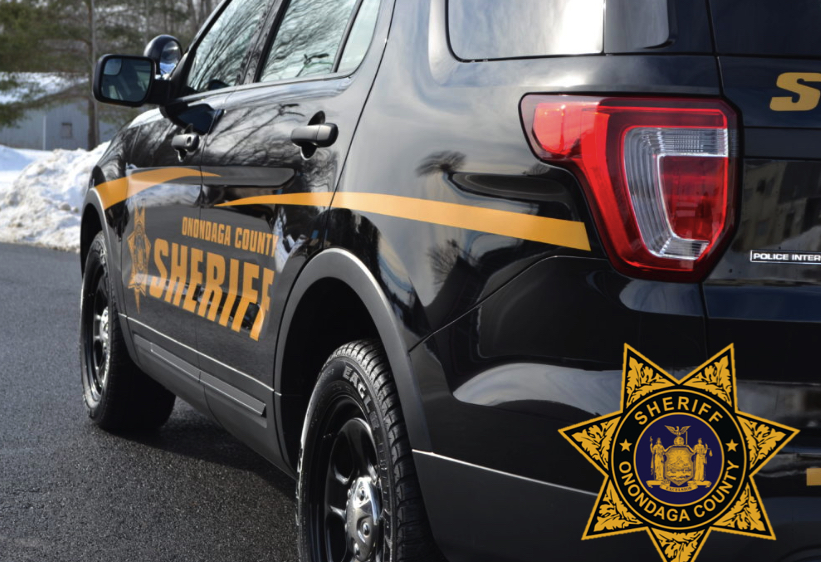tip411 interviewed Captain Dan Brogan of the Onondaga County Sheriff’s Department in Onondaga County, New York.
Q: Tell us about Onondaga County and your department (how many residents, how many sworn, etc.).
A:Onondaga County is located in Central New York and includes the city of Syracuse. The county is 827 square miles, has a population of over 750,000 residents, and our department has just over 220 sworn members.
Q: How is tip411 administered in the Sheriff’s department (responsibilities, protocols, etc.)?
A:Our previous tip lines ran through the Public Information Office. When we set up tip411, we made the decision to have several administrators on the system who are responsible for being a clearinghouse for tips that are received. When they come in to myself, the Public Information Office, our Fusion Center, etc., we distribute the tips according to topic and assign them to individuals to respond and have tip conversations directly with the tipster.
Q: How is the tip411 system used in your community?
A:The majority of tips we receive, without question, are for drug activity. Most people want to report drug activity because no one wants a drug house next door to them, but they don’t have great success by calling 911 with this information because, usually, there’s very little patrol can do when they respond.
Because people can share this information electronically through tip411 and they know it’s anonymous, they have been providing more specific information than they leave on our tip line where they have to leave a voice message.
When email came out years ago we saw a huge uptick in the amount of tips that came in that way, but once people realized that we could trace their IP address to find out where the tip came from and that it was not truly anonymous, they became much more skeptical of contacting us that way.
With tip411, there’s not that traceability which is great for the tipster, yet we are able to create an ongoing anonymous conversation and ask questions to get that one more piece of information that makes a tip actionable and helps us affect arrest.
Q: What have you done to brand and promote the tip411 system in Onondaga County?
A:We’ve had success because we’ve done promotion of the system. We have the information on our website and almost every single night on the news there’s something from the Sheriff’s department about a crime and how we’re trying to identify a suspect and tip411 is available to share information safely and anonymously.
It’s also been helpful to us that the Syracuse Police Department and Onondaga County District Attorney’s Office are both using and promoting tip411 as well because it has added to a wider knowledge about the system with residents in our county.
Q: Any notable tips/arrests credited to tip411 that come to mind?
A:What’s notable is the every day success we’re having with the system that we hadn’t seen before. We’re getting more tips, closing more cases, and being able to continue anonymous tip conversations with reporting party rather than just getting a voicemail with a piece of information that isn’t enough to help us build a case off of.
We’ve had neighbors and community groups in meetings tell us they’re glad we’ve taken care of this problem or that drug location, and we wouldn’t have been able to do it with tip411.
Q: Have you noticed an increase in the number of tips your department is receiving and cases you are solving since implementing tip411?
A:We’ve absolutely seen an increase. Previously we got about one to two tips per week on our traditional phone tip line and through other avenues. We’re still seeing that, but in addition we’re now receiving about a tip per day through tip411.
Since launching our tip411 system in December of 2015, we’ve received approximately 225 tips. That’s 225 more tips than we would’ve gotten without tip411.
Of those 225 tips, we’ve opened 70 cases and closed nearly 80% of those through arrests.
I spent 14 years as Supervisor of the Narcotics Unit, and during that time we closed between 55% and 60% of cases based on tips that came in. The ones we didn’t make arrests on were because we couldn’t verify because there wasn’t enough information. With tip411, now we can go back and ask that one or two extra questions to make it more successful. For example, a tip about a blue car isn’t that helpful, but if we can follow up and get the tipster to share the license plate for the blue car, that really helps quite a bit and that’s why we’ve seen our arrest rate grow significantly with tip411.
Q: So, why tip411?
A: We got tip411 in December 2015 through a partnership with the Onondaga County District Attorney’s Office and it’s been very successful for us. As I’ve said, it’s not just a substitute for other ways we have for people to submit tips, it’s an additional, anonymous avenue for people to reach us with important information that’s helping us get more information and close more cases.
Q: Anything you would tell other agencies considering tip411?
A: It’s a success. It’s had a proven track record of success with us for anonymous tips for narcotics because it allows you to communicate anonymously with the tipster and lets a lot more people come forward with more information.
People want to come forward, but they’re petrified. tip411 has helped remove that fear and has been a really a fantastic addition to our arsenal.
